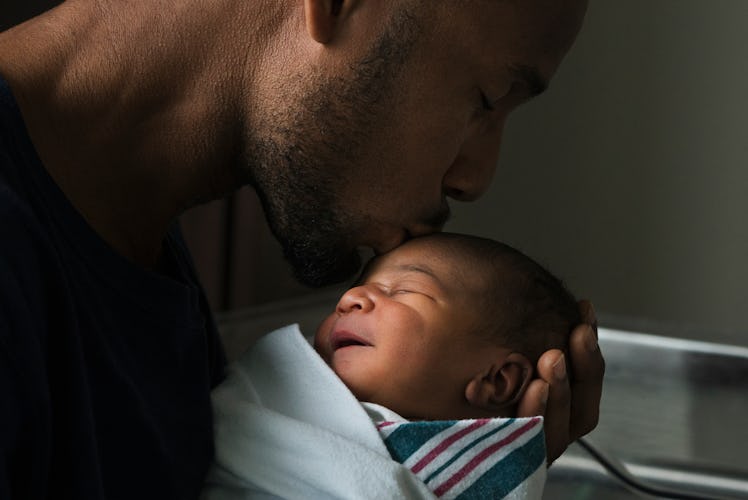Struggling To Choose A Baby Name? You Don’t Have To (Yet).
You are under no obligation to pick a baby name before you leave the hospital.

The process of choosing a baby name begins long before the baby arrives...and ‘process’ might be too strong a word. It implies a structure that is often absent. Soon-to-be parents flail around and lash themselves with the branches of the family tree. It’s stressful. Specifically, it’s stressful at an already stressful time, which can lead to arguments, disagreements, and incredulous eye-rolls. If all goes well, couples arrive at a sobriquet that feels timeless and unassailable. If not, they panic, name their kid Azera in honor of their used Hyundai, and live to regret it.
In short, asking an expecting couple to settle on a name is a lot. It’s also unnecessary.
New parents struggling to name little baby TBD can and should consider a radical option: Don’t name the baby — at least not for a while. It’s perfectly reasonable to wait until after your kid is born before making their name public record. By waiting, it’s possible to push the deadline and try some stuff out. Plenty of names sound great right up until they don’t, a moment that tends to arrive a few months after birth.
This might sound extreme, but there is plenty of precedent for waiting to name a baby. In fact, there are many religious and cultural traditions in which babies are named several days after their birth. Orthodox Catholics and Jews host naming ceremonies eight days after birth. In some Hindu traditions, babies aren’t named until 11 days after birth. Even secular traditions (in France mostly) allow for some kind of civil naming ceremony that occurs after a child is born. So does U.S. law.
Parents can be forgiven for not knowing that they can leave the hospital with a nameless baby. Bureaucracy is a bully. But it’s completely legal in most U.S. states to leave the baby portion of the birth-certificate blank. You can walk out of any hospital with a nameless child (as long as it’s your own). The paperwork can wait. And in some places, the paperwork can wait for up to a year.
Logically, this makes complete sense. Having a legal name is really only important when it comes to litigation. If you want to sue a person, that person needs to have a name. So, unless your child is going to be defrauding their new friends at daycare, there’s no particular reason to rush unless you feel strongly that the name has revealed itself.
And that can take time. Sometimes baby Kevin winds up growing into more of a Maurice. Sometimes baby Kevin looks up wide-eyed into the gaze of a mother who decided that she absolutely detests that name. It happens. There’s a reason people don’t go around eagerly signing legal documents. Choice is a nice thing to have.
There’s also this: We live in an age of baby naming fads. Waiting can help parents avoid giving their kid the same name as every other kid on the block. There would have been fewer Jennifers born in the late 1970s and a hell of a lot fewer Laurens born in the mid-1980s if parents had just taken a damn beat.
The expectation that parents will have a name for their child day of delivery is far from the most ridiculous stressors placed on new parents, but it is yet another expectation. And it’s one that can be ignored if it proves inconvenient, bothersome, or stressful. If you don’t have a name for your kid before they’re born, it makes sense to wait.
And, if nothing else, waiting to name a kid is a low-stakes way to for new parents to exercise their opting-out muscles. (What’s his name? He doesn’t have one. WHAT!? *Shrugs*). What your family needs and what culture dictates aren’t always the same thing. Culture can wait.
So it’s okay to take more time and be more thoughtful. Your baby will grow just fine for a week or more without being a Scout or Tiffany or Archer. Being human doesn’t require a name, just parents.
This article was originally published on